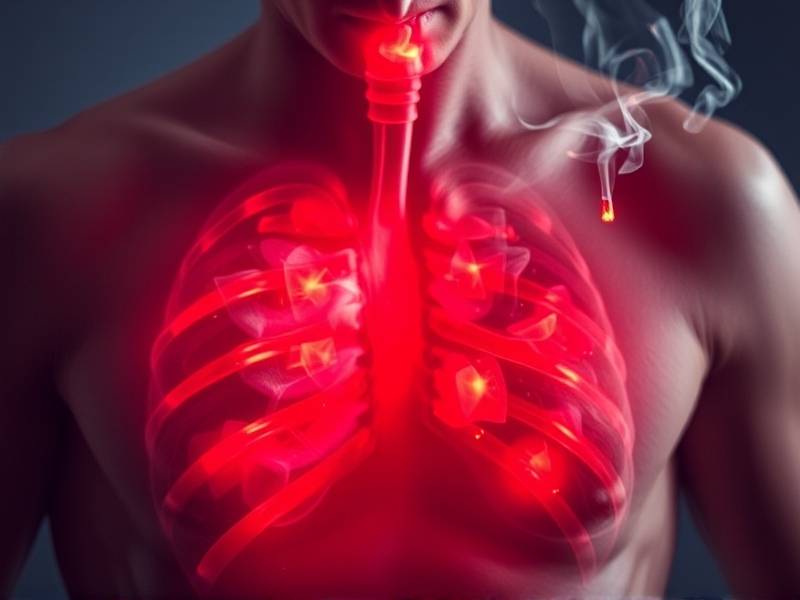Can Quitting Smoking Really Cause Chest Pain? The Truth You Need to Know
Understanding the Link Between Quitting Smoking and Chest Pain
Quitting smoking is a significant step towards improving one's health, but it can also bring about unexpected challenges. One common concern is whether or not quitting smoking can lead to chest pain. This article delves into the truth behind this question, offering insights from medical experts and providing you with the information you need to make an informed decision.
What is Chest Pain?
Chest pain, also known as angina, can have various causes. It often feels like a tightness, pressure, or squeezing sensation in the chest. In some cases, it may radiate to the arms, neck, jaw, or back. While many people associate chest pain with heart conditions, it can also result from other factors.
Can Quitting Smoking Trigger Chest Pain?
Yes, quitting smoking can indeed cause chest pain in some individuals. This phenomenon is known as "smoker's cough" or "smokers' bronchitis." When you stop smoking, your body begins to heal from years of tobacco exposure. This healing process can lead to inflammation in the airways and increased mucus production.

Why Does Quitting Smoking Lead to Chest Pain?
- Bronchospasm: Nicotine is a bronchodilator that relaxes the muscles around the airways. When you quit smoking, these muscles may spasm temporarily, causing chest tightness and pain.
- Inflammation: The inflammation of airways and alveoli (air sacs) due to reduced oxygen levels and increased mucus production can lead to chest discomfort.
- Coughing: As your body tries to clear out accumulated mucus and debris from the lungs, coughing becomes more frequent. This can strain your chest muscles and cause pain.
How Long Does Chest Pain Last After Quitting Smoking?
The duration of chest pain after quitting smoking varies from person to person. Some individuals may experience discomfort for a few days or weeks after quitting, while others may take several months for their symptoms to subside completely.
Managing Chest Pain After Quitting Smoking
Here are some tips to help alleviate chest pain after quitting smoking:

- Stay Hydrated: Drinking plenty of water helps thin mucus and makes it easier for your body to expel it.
- Avoid Irritants: Stay away from allergens like dust and smoke if possible.
- Deep Breathing Exercises: Practice deep breathing exercises to relax your muscles and improve lung function.
- Seek Professional Help: If your chest pain persists or worsens despite taking these measures, consult a healthcare professional.
Conclusion
While quitting smoking may initially cause chest pain in some individuals due to bronchospasm and inflammation, this discomfort typically resolves within a few weeks or months as your body heals from years of tobacco exposure. Staying hydrated, avoiding irritants, practicing deep breathing exercises, and seeking professional help when needed can help alleviate symptoms during this transition period.
Remember that quitting smoking is a vital step towards better health. Don't let concerns about potential side effects deter you from making this life-changing decision!
